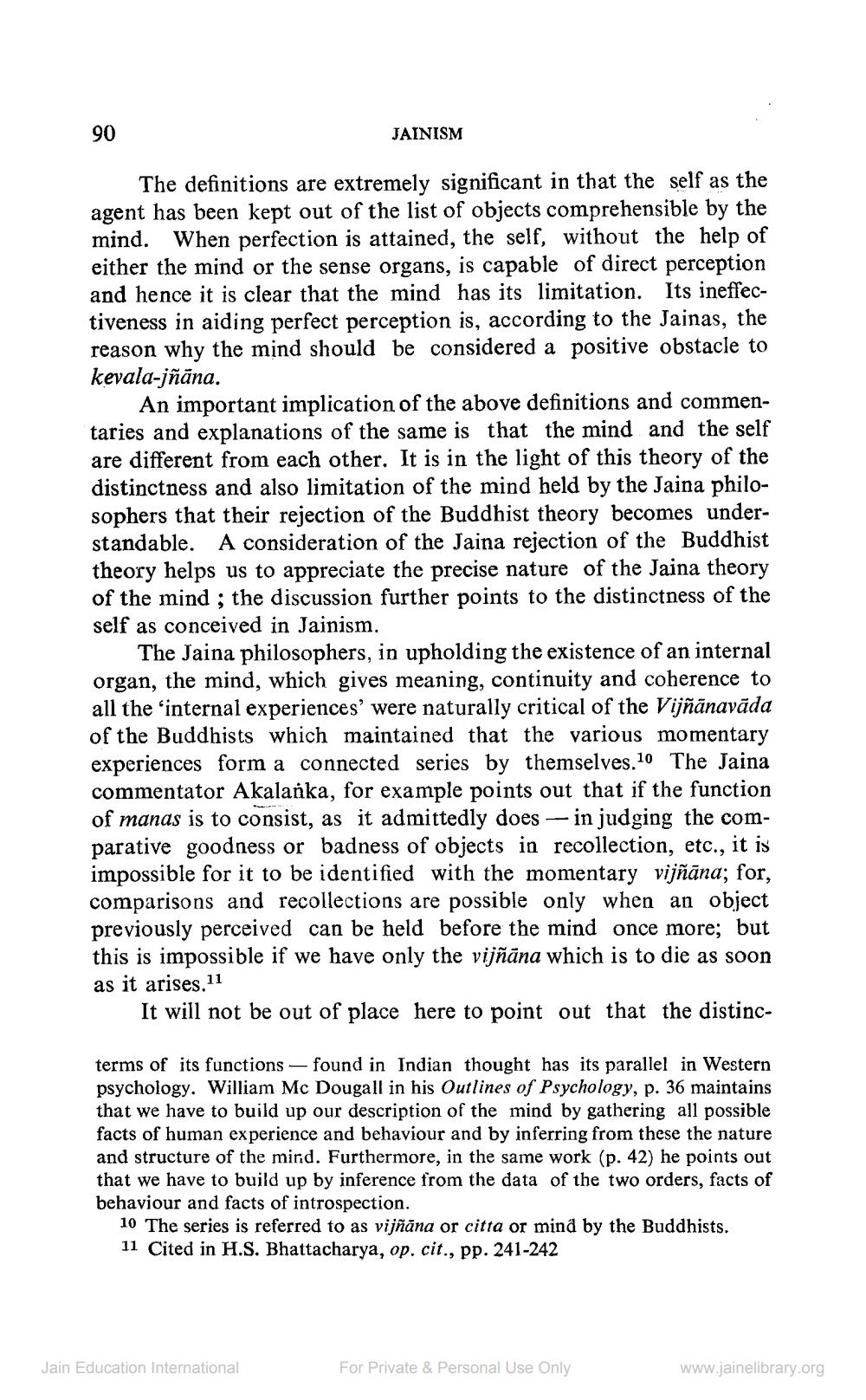________________
9
JAINISM
The definitions are extremely significant in that the self as the agent has been kept out of the list of objects comprehensible by the mind. When perfection is attained, the self, without the help of either the mind or the sense organs, is capable of direct perception and hence it is clear that the mind has its limitation. Its ineffectiveness in aiding perfect perception is, according to the Jainas, the reason why the mind should be considered a positive obstacle to kevala-jñāna.
An important implication of the above definitions and commentaries and explanations of the same is that the mind and the self are different from each other. It is in the light of this theory of the distinctness and also limitation of the mind held by the Jaina philosophers that their rejection of the Buddhist theory becomes understandable. A consideration of the Jaina rejection of the Buddhist theory helps us to appreciate the precise nature of the Jaina theory of the mind ; the discussion further points to the distinctness of the self as conceived in Jainism.
The Jaina philosophers, in upholding the existence of an internal organ, the mind, which gives meaning, continuity and coherence to all the 'internal experiences' were naturally critical of the Vijñānavāda of the Buddhists which maintained that the various momentary experiences form a connected series by themselves.10 The Jaina commentator Akalanka, for example points out that if the function of manas is to consist, as it admittedly does — in judging the comparative goodness or badness of objects in recollection, etc., it is impossible for it to be identified with the momentary vijñāna; for, comparisons and recollections are possible only when an object previously perceived can be held before the mind once more; but this is impossible if we have only the vijñāna which is to die as soon as it arises. 11
It will not be out of place here to point out that the distinc
terms of its functions — found in Indian thought has its parallel in Western psychology. William Mc Dougall in his Outlines of Psychology, p. 36 maintains that we have to build up our description of the mind by gathering all possible facts of human experience and behaviour and by inferring from these the nature and structure of the mind. Furthermore, in the same work (p. 42) he points out that we have to build up by inference from the data of the two orders, facts of behaviour and facts of introspection.
10 The series is referred to as vijñāna or citta or mind by the Buddhists. 11 Cited in H.S. Bhattacharya, op. cit., pp. 241-242
Jain Education International
For Private & Personal Use Only
www.jainelibrary.org




